On Libraries 🕳️
№ 13 • stolen books, lost letterforms, and one censorship officer
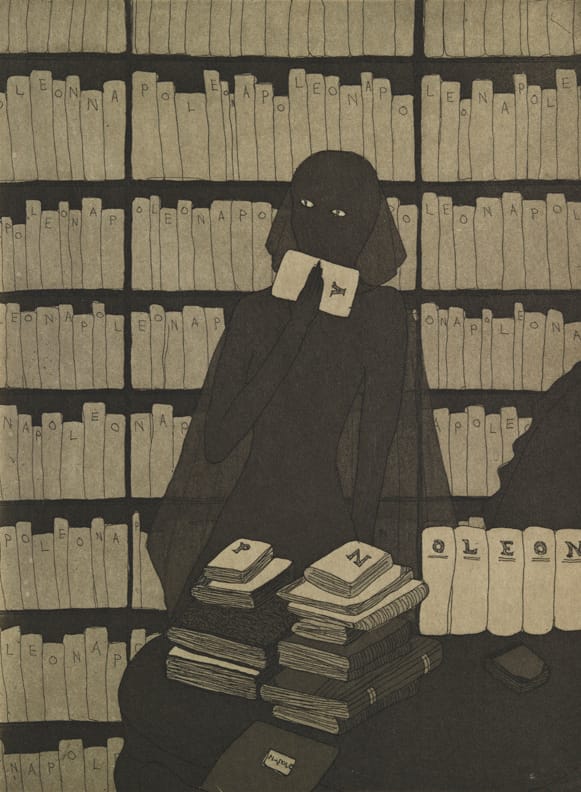
I have lived in 4 cities in the past ten years; naturally, I paid libraries frequent visits, you'd think I lived there. This post was supposed to be a love letter to the public library 💌 how it held me in my highest and lowest, even when my bank account was in the single-digit count! There aren't many places that are open and free for all. Mere access through a plastic card granted me a step into worlds related to any topic that crossed my mind. The history of libraries is peppered with racism and the tragic truth of losing them to fires and wars. Instead of writing a love letter, I decided to lay out the complexities that libraries could present. Libraries were not always accessible to all; for example, libraries were segregated in the southern states of the US. In 1961, a group in Mississippi called the Tougaloo Nine spearheaded the civil rights movement by staging a "sit-in" at a library for whites only1. They were arrested, but a year later, the library was no longer segregated.
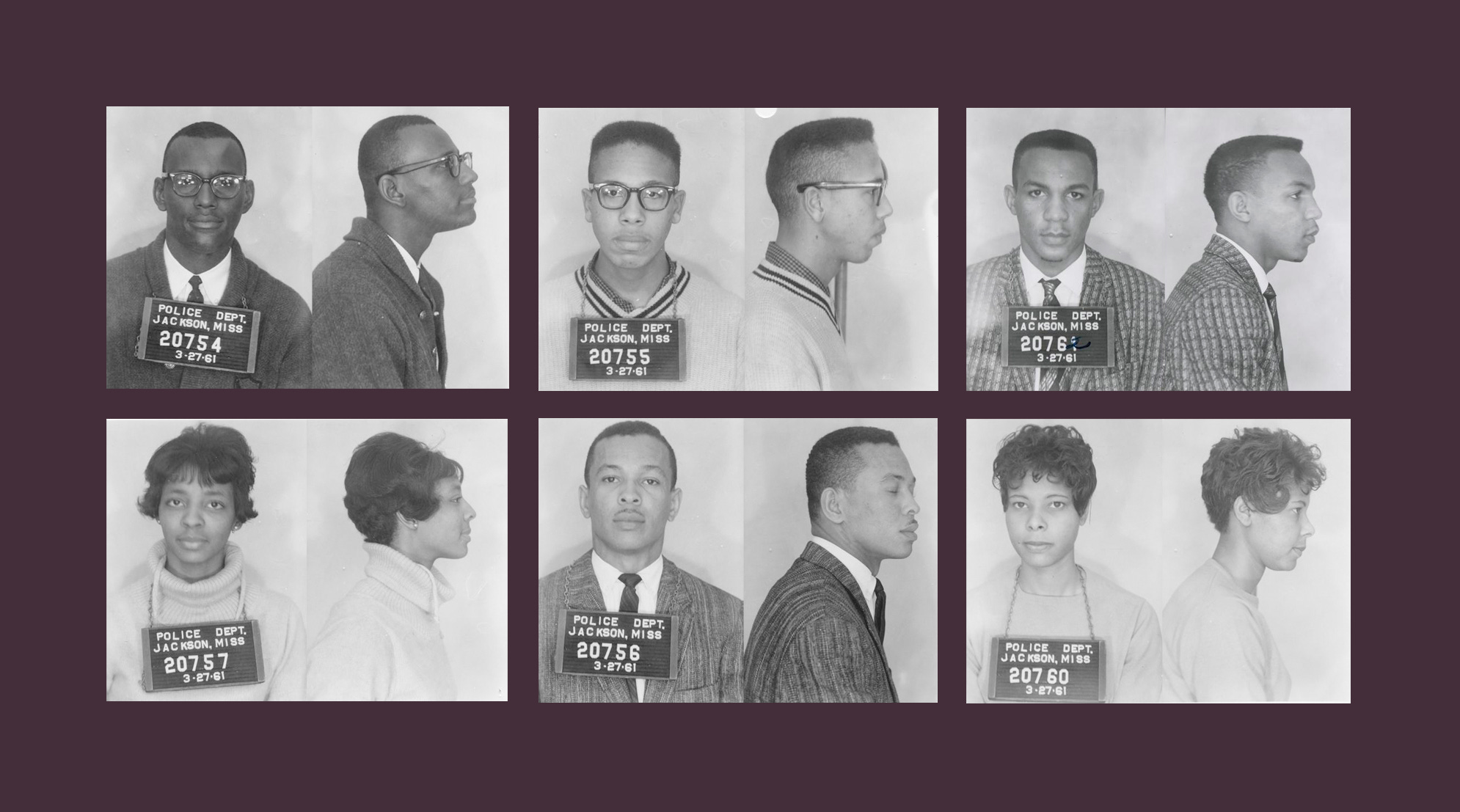
Another example is the systematic burning of books by the Nazis. Years ago, I visited the Design of the Third Reich exhibition at Design Museum Den Bosch (NL). The exhibition starts with a screening of the burning of books that the Nazis carried out everywhere in the 1930s; I could not sit through the screening - it was so hard to watch I had to leave the hall. The most significant loss during the book burnings in relation to gender and queer theory is Magnus Hirschfeld's Institut für Sexualwissenschaft2 library, where the ceremonial burnings were organized by Deutsche Studentenschaft3.

Burning books symbolizes fear of words and concepts. Recently, Librarians and Archivists with Palestine4 have reported on archives, libraries, and museums in Gaza:
It is very difficult to determine the status of archives, libraries, and museums in Gaza during the ongoing Israeli bombardment ... archivists and librarians have been repeatedly displaced, injured, or killed, making it even more difficult to take stock of the damage to cultural heritage. As a result, it should be assumed that this report represents only a fraction of the extent of damage and death, not a complete picture.
Besides the methodical destruction of libraries, other tactics, including censorship, theft, and even holding books hostage with the guise of protecting and preserving, are in practice. A library could shift from an accessible institution to a project dedicated to erasing people's cultures and histories. This has been happening since 1946 in Palestine. The National Library of Israel holds anywhere between 40,000 to 50,000 books looted from Palestinian institutions and private home libraries5. On July 19, the ICJ ruling on a case from 2022 produced a small win since the decision is non-binding. "The ICJ has ruled that Israel's continued presence in the occupied Palestinian territory is illegal and that it must be ended as rapidly as possible."6 One of the highlights is that Israel must return all land and assets it has seized since 1967 to Palestinians, including cultural items and archives. I am curious how this will unfold in the next few months. How will returned books feed into the cultural fabric and reclaiming of identity for Palestinians and Arabs? How will organizations like Sakakini Cultural Center and Tamer Institute grow their programs and initiatives? I might be naive, and not a single book might be returned, but I am hopeful.
A library of one's own
Ownership of books is established in different formats; there are bookplates (also called ex libris). Some people use an embosser with their name, and I have also read about book poems/ rhymes. As a teenager, I marked novels and books I read and owned with my name—and heavily noting in the margins. I used thin gel pens in mustard yellow and olive green. They made the books truly mine. During college, I used colored pencils in pink and orange to underline and write notes. The first type of bookplate or mark to show ownership is said to have begun at a library in نَيْنَوَىٰ Nineveh, Assyria (current day Iraq); this library was the first cataloged library owned by King Assurbanipal7, who had scribes add a curse on the terracotta tablets to deter people from stealing from his library. In a true colonizer manner, tablets from the library are still in the possession of the British Museum! At the National Library of Israel, the looted books are labeled AP (Abandoned Property)8 and have the signatures and names of their owners on the title page. Sometimes, that title page also bears the library's stamp, displaying a visual history of changed ownership. Do you tend to write your name on your books? Have you lost any books after lending them to people?
✿ i! ii! iii!
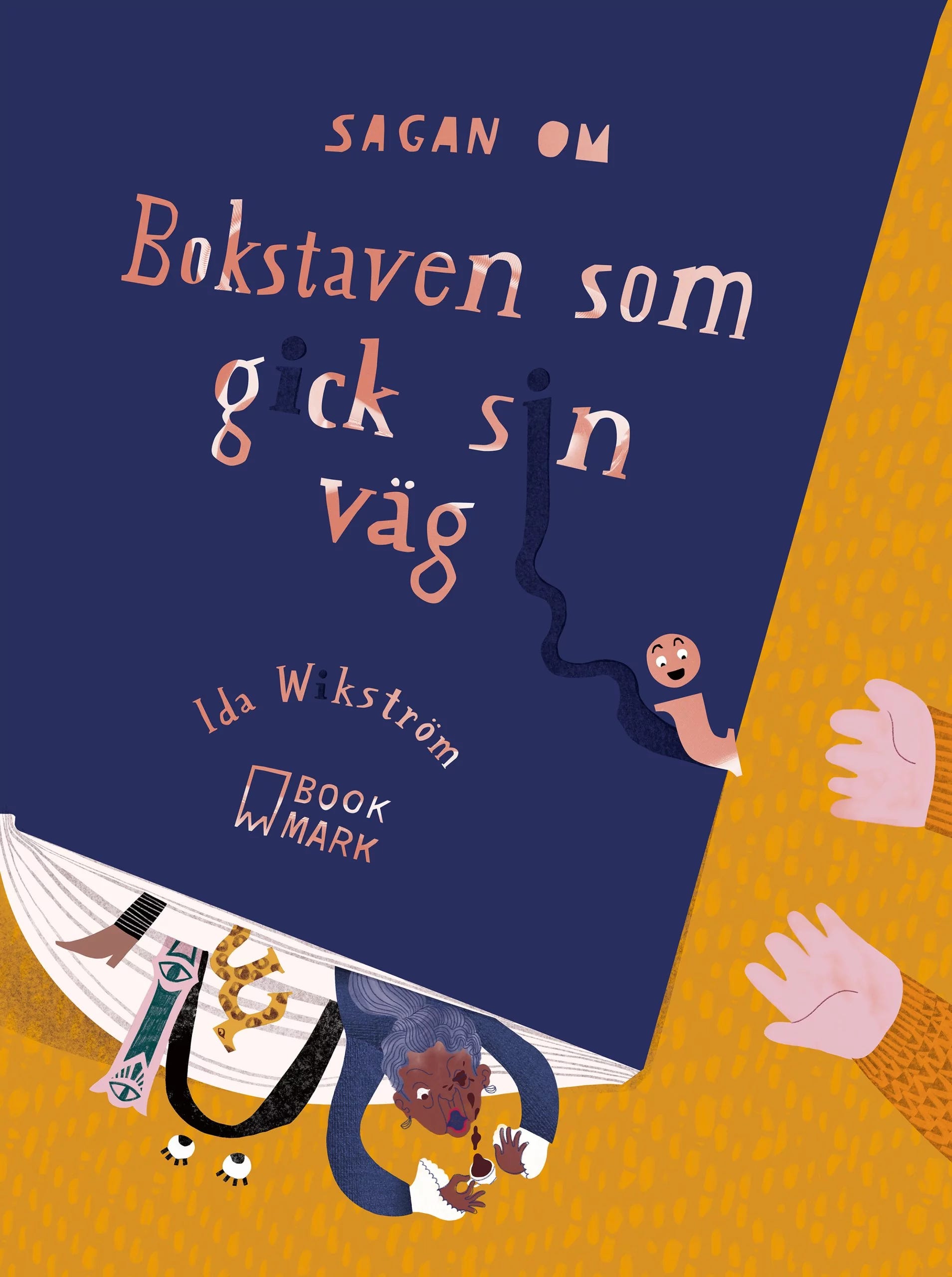
Sagan om bokstaven som gick sin väg
Ida Wikström
Bookmark Förlag, 2023
ISBN 978-91-89585-63-8
This is a picturebook that I filed under the 'bookish' theme on my spreadsheet— which includes anything related to reading, bookstores, letterforms, and language. In this picturebook, we travel from one book to another, from one genre to another, following a little feisty i. 'i' goes through the world of words, being erased, controlled, and even jailed only to emerge stronger, colorful, and unapologetically themselves.
PROMPT
Pick a letter—your initial or an å ä ö. Create a one-page comic showcasing the letter you picked.
Character design: Pick a letter and imagine its personality. Sketch a few different expressions to showcase that personality.
Pick a word from the picturebook you have never encountered, FÄNGSLANDE9? and draw it as a typographical composition.
رف الكتب 📖 recent favorites
حارس سطح العالم
بثينة العيسى
Takween Publishing, 2019
ISBN 978-6140129061
This is an engaging and relevant take on censorship, book banning, and bookworms. It applies not only to the Gulf region but also to 2SLGBTQIA+ book bans. I read the Arabic edition. It is beautifully written and clever in using metaphors and references to other books—a true bookworm's book! There is an English translation if you're interested in picking up a book by a Kuwaiti author.
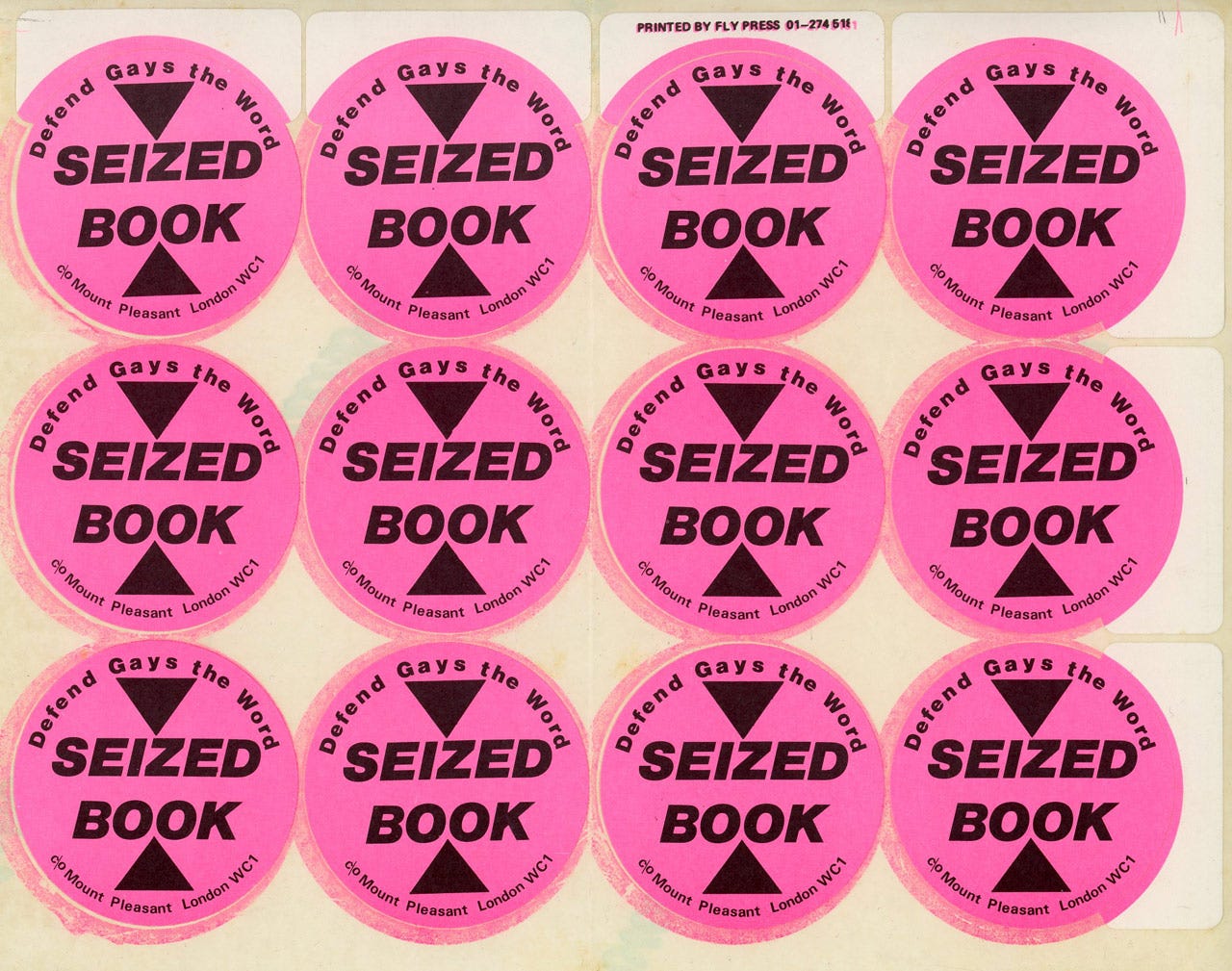
The Book Censor's Library
Bothayna Al-Essa
Translated by: Ranya Abdelrahman + Sawad Hussain
Restless Books, 2024
ISBN 9781632063342
Another edition with a title closely resembling the source text title will be released in September 2024.
The Guardian of Surfaces
Bothayna Al-Essa
Selkies House Limited, 2024
ISBN 9781917254052
Bokmärke 🔖 notable + on my radar
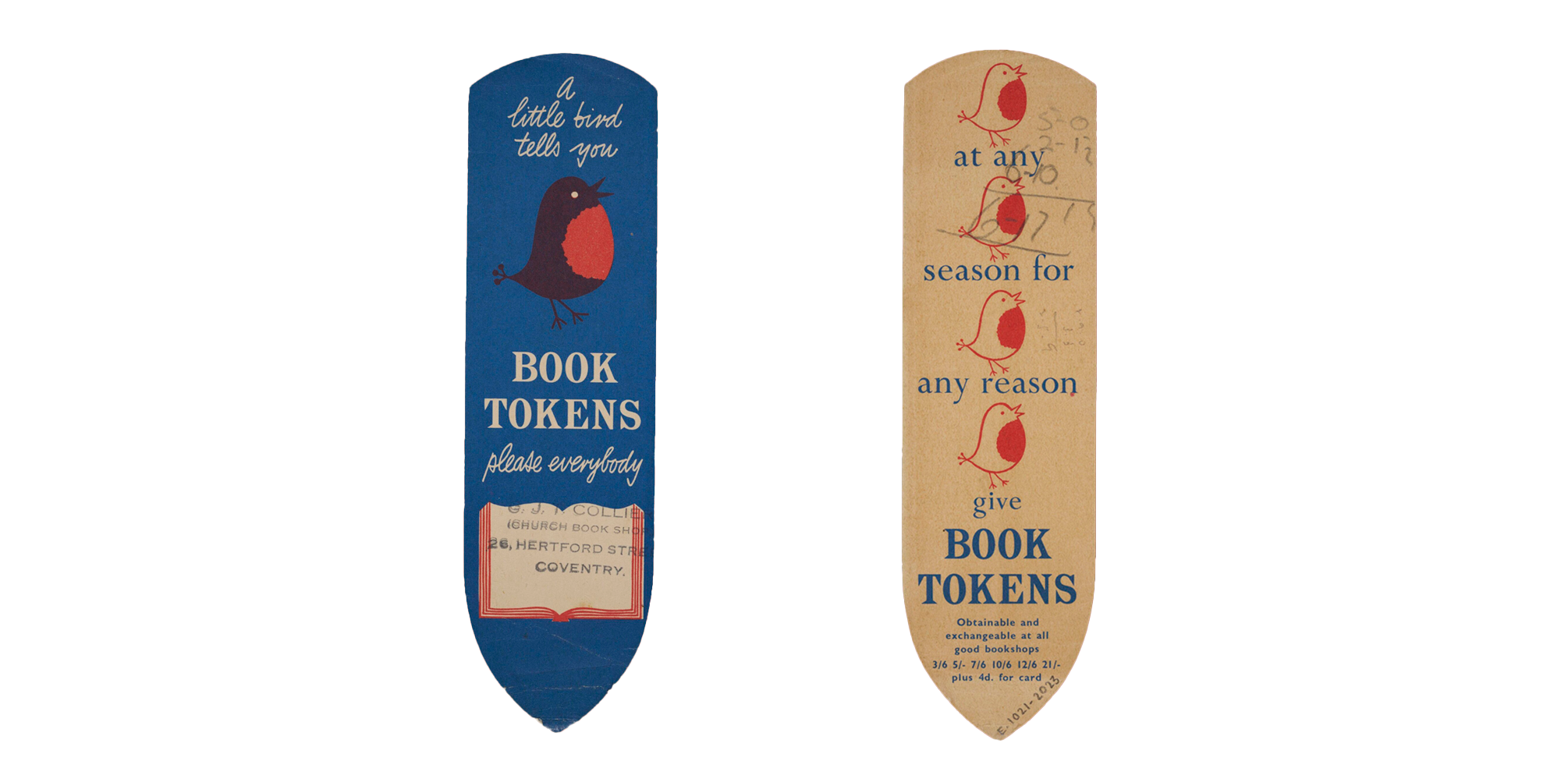
🤝 Donate to Tamer Institute
If you dedicate a portion of your earnings to giving, Tamer Institute is a wonderful organization that works with community education and reading initiatives in the West Bank and Gaza. You can donate here
🫰 Support Palestinian artist | Riso zine release
Maamoul Press is releasing A NORMAL CONVERSATION IN A NORMAL HOUSEHOLD by Amal El-Nakhala "who escaped with her family to Cairo during the current war on Gaza. This sketch diary collects three short comics as well as several standalone illustrations Amal made during the war. All proceeds from this zine will support Amal as she rebuilds her life."
Maamoul is organizing a Pop-up for Palestine on August 3 at Spot Lite Detroit / Cairo Coffee with activities planned to take place on-site (letterpress in Arabic + zine making).
✿
until next time 🐛
When trouble strikes, head to the library. L. Snicket
Berry, Deborah Barfield. “They Held a ‘read-in’ at a Whites-Only Library in 1961 and Helped End Segregation. Meet the Tougaloo Nine.” USA Today, Gannett Satellite Information Network, 31 May 2022, LINK ↩
Institute of Sex Research ↩
German Student Union ↩
Israeli Damage to Archives, Libraries, and Museums in Gaza, October 2023–January 2024 | A Preliminary Report from Librarians and Archivists with Palestine LINK ↩
Brunner, Benny. “The Great Book Robbery.” YouTube, 4 Nov. 2020, LINK ↩
Legal Consequences arising from the Policies and Practices of Israel in the Occupied Palestinian Territory, including East Jerusalem. ICJ LINK ↩
Murray, Stuart. Library, the: An Illustrated History. Skyhorse Publishing, Inc, 2009. ↩
Brunner, Benny. “The Great Book Robbery.” YouTube, 4 Nov. 2020. At one point in the documentary, author Ala Hlehel says, “AP should be SP = stolen property.” ↩
CAPTIVATING ↩
